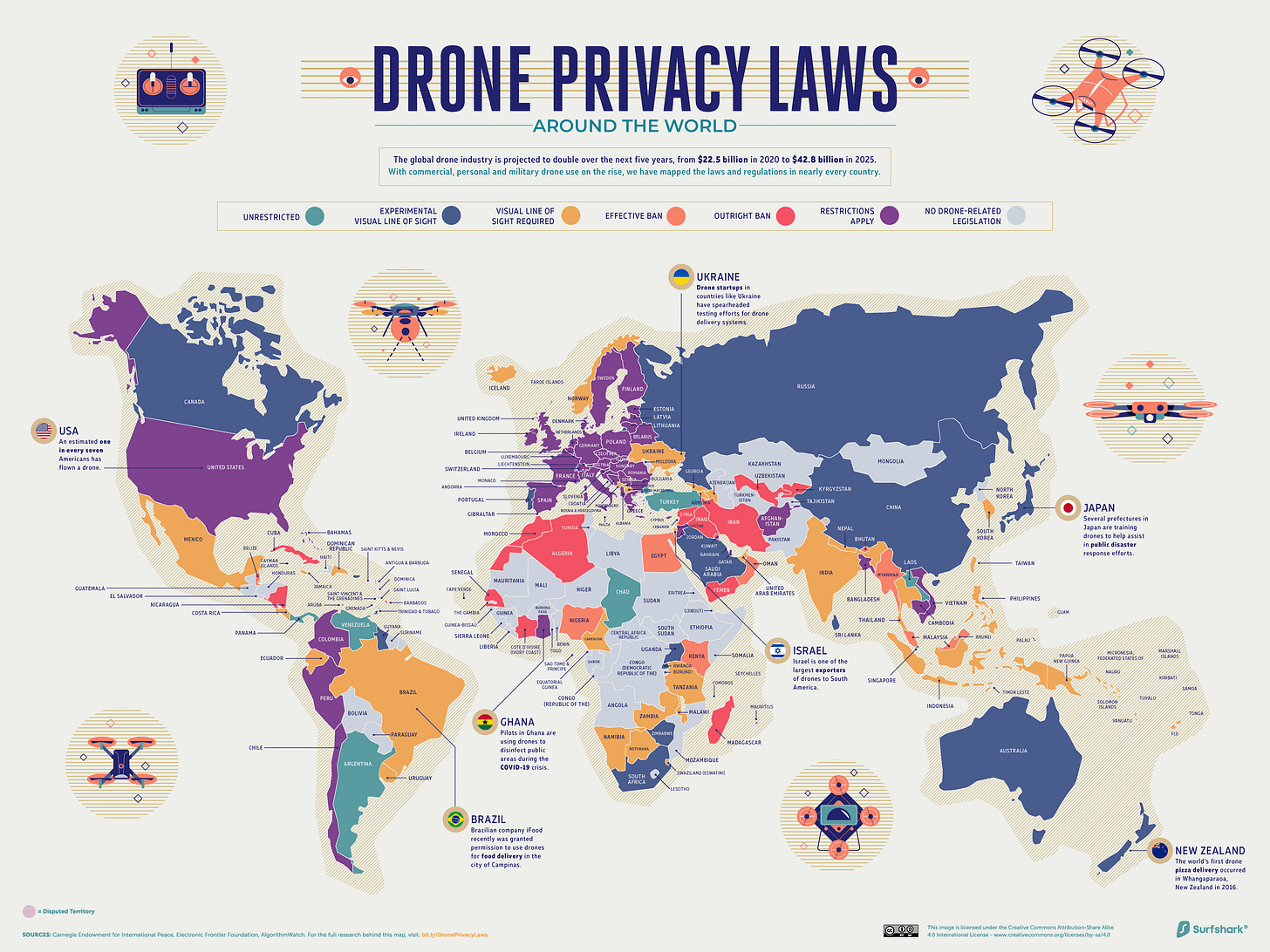Mobility Matters Daily #176 - Banning planes, emissions from public transport, and drones
Also, sign up for Mobility Camp!
Good day my good friend.
I’m just going to get straight to the point. If you want to come and chat transport, climate change, and equity this weekend, then you should come to Mobility Camp. We still have some tickets going spare, so snap them up while you can!
Having said that, here are today’s links curated especially for you.
James
This free daily newsletter is sent to everyone. Paid subscribers get access to exclusive in-depth analysis once a week, and a tailored analysis on a policy issue once a month. You can upgrade at any time.
Ban domestic flights where there is an equivalent rail journey
The Campaign for Better Transport is calling on the UK Government to ban domestic flights in the UK where there is an equivalent, sub-5 hour train journey. This follows on from a similar ban imposed by the French government on flights that are sub-2.5 hours where there is an equivalent train journey.
I haven’t seen much in the way of peer-reviewed analysis of the impacts of such a ban, but the principle makes sense. Data from the National Travel Survey shows that rail was in 2020 (heavily caveated for COVID-related restrictions on flights) the primary non-car mode for trips over 50 miles, even beating out air travel for domestic distances over 350 miles (12% for rail, 9% of trips for air). Where rail is not competitive, however, is price. For that you just have to look at who pays the bills for the rail industry.

Public transport needs to clean up its act
An article in the New York Times details how many cities are cleaning up their modes of public transport through low emissions and electrification. This ties into a frustration of mine where it is assumed that the environmental advantage of public transport will always be. Data from Our World in Data is already challenging that assumption, where a petrol car with two people in it emits less carbon per passenger kilometre than a bus with an average loading of 11 people.
As i touched on briefly in my in-depth article yesterday, the electric car is here. To use a public transport analogy, it is now steaming up on the rails behind public transport in terms of environmental performance. Whilst there may be complaints about the cost of changing to electric buses and trains, a question not asked is - what is the cost of not electrifying public transport?
Random things
A few random things from around the web.
Notes, railways, and bitcoins (Ed Conway)
Some thoughts on multivariate maps and their use in the wild (Hi.Stamen)
China to roll out new domestic and international railway operating plan (Foreign Brief)
Revolt of the delivery workers (Curbed)
The Human Brain Project (The Conversation)
Interesting things

Surfshark have created a great graphic, that is interactive on their website, that looks at the relationship between drones and privacy laws. In summary, if you are flying a drone in most places in Europe you will be restricted in what you can do. Elsewhere, it varies a lot.
If you do nothing else today, do this…
There are some excellent lessons to be learned from this article from The COVID Tracking Project, showing the perils of automatically collecting data.
